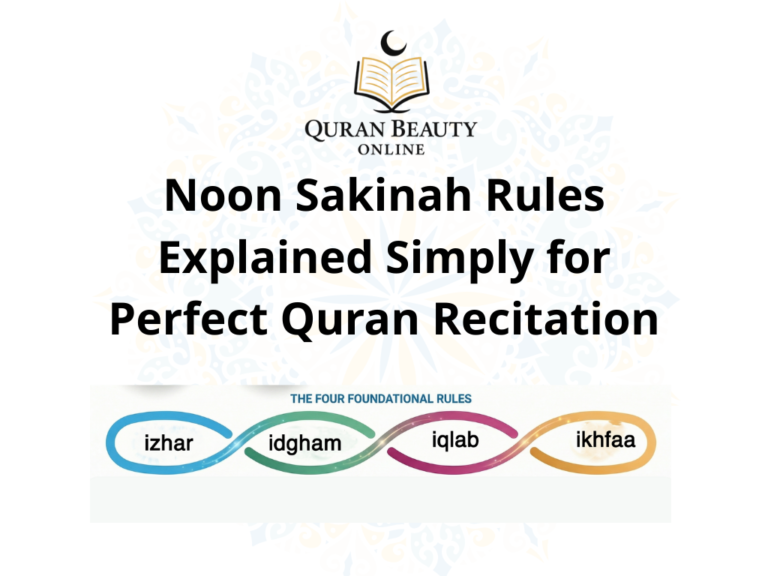Start Your Journey with Online Arabic Classes for Beginners
Online Arabic classes for beginners will open many doors for you as Arabic is more than a language, it’s the ticket to an incredibly rich universe of culture, heritage, and potential. Spoken by over 400 million people across 20+ countries, Arabic signs you to broaden your professional opportunities, enriches your spiritual understanding, and bridges the world.
Whether you would like to read the classic writings of Arabic, communicate during travels, or connect with your Muslim heritage, studying Arabic will open your eyes in countless ways.
Arabic is a rich and influential language in Islamic studies, as explained in educational references like Encyclopedia Britannica.
If you’ve ever wondered where to begin, which Arabic to study, which online course to take, or how to get started, this guide will guide you through all you must do. From studying Modern Standard Arabic versus dialects to choosing the best online Arabic course, you’ll find clear, beginner-oriented guidance to start with confidence.
The First Big Decision: Modern Standard Arabic (MSA) vs. Dialects

As beginners are looking for online Arabic classes, they quickly realize that there isn’t just one Arabic. There are actually two varieties: Modern Standard Arabic (MSA), and all the colloquial (dialect) varieties. Knowing the difference is the first significant step in creating your learning path.
Modern Standard Arabic (MSA)
What is it:
Modern Standard Arabic (or Fus’ha in Arabic: فصحى) is the formal, standardized, variety of Arabic you will find in newspapers, books, educational and political contexts, and religious contexts. This would be the ‘Arabic’ you would hear during a news broadcast, or read in a translation of the Quran or modern literature.
Pros for Beginners:
Before you sign up for MSA online Arabic classes for beginners you should be familiar with its pros and cons:
Taught and understood across all Arabic speaking countries.
Provides a strong grammatical and vocabulary base for long-study.
Is appropriate for students who wish to, study, read the Quran, or travel to multiple countries.
Cons:
It is not relevant for daily conversations, Arabs resort back to their native dialect for conversations.
Colloquial Dialects (Spoken Arabic)
What are they:
Arabic dialects are the ones spoken in everyday life conversation. There is a variation in every area, Egyptian Arabic is popular from media and movies, Levantine Arabic is spoken in Syria, Lebanon, and Jordan, and Moroccan Arabic is spoken in North Africa.
Advantages for Beginners:
Let’s you speak quickly to locals.
Helps in listening to songs, movies, and social media.
Perfect for tourists and those who want functional language skills.
Downsides
Each dialect is geographical, what you learn in Egypt might not be understood in Morocco.
Less formal grammar and spelling.
Which One to Choose Online Arabic classes for beginners
If you are just starting, you have two solid options:
Learning MSA: If your goals are to read Arabic literature, study religion or to have a base to work towards fluency over a longer period of time, begin with Modern Standard Arabic online Arabic classes for beginners.
Choose a dialect that is widely spoken: If your goal is to be able to communicate in real time or if you are planning to visit or travel to the region, choose either Egyptian or Levantine dialect, which are mutually intelligible and spoken widely in media and cultural exchanges.
In most cases, the best option is to begin with MSA to learn the alphabet and letter shapes, and then add a deep dive into a dialect for ‘speaking’ at a later time.
This is exactly how the Quran Beauty Online Arabic Course is built, it provides an engaging and simple beginner class with delightful MSA instruction that allows the student to ease into practical conversation. You not only learn the Arabic letters, you will become confident in your ability to speak the language intuitively and naturally.
What takes a Great Online Arabic Class?

After selecting the type of Arabic you wish to learn, the following struggle is picking the perfect course. All online Arabic classes for beginners are not the same, some instruct you on how to merely memorize terms, but others equip you to actually read, write, and understand Arabic confidently.
This is what you should look for when you select your first online Arabic course.
Class Format and Structure
How you learn may be worth as much as what you learn. Online Arabic lessons come in three formats:
1. Face-to-Face Instruction (Private Setting):
This is the quickest and simplest way to improve. Face-to-face instruction with a native speaker will help you learn pronunciation, grammar, and confidence right away. It is also ideal for people who like routine and accountability, like the interactive lessons found at Quran Beauty Online with native teachers to help you step by step.
2. Group Classes:
If you prefer being in a class with someone else, group classes allow a slower, interactive environment, listening and speaking with other students. They are great for motivation, and they are cheaper than private instruction.
3. Self-Paced Courses and Apps:
For complete beginners, self-paced learning websites like Mango Languages or Duolingo are helpful for building vocabulary and alphabet. Again, they are better as supplements and not sole sources of learning, specifically for grammar and pronunciation.
Curriculum Elements for someone at the beginner levels
When reviewing online Arabic classes for beginners course material, make sure the program contains these fundamental elements:
The Arabic Alphabet: Learning the 28 letters and their relationship from right to left is the difference in reading and writing.
Pronunciation Training: Arabic has sounds not present in English (like ع and ق). A skilled native teacher will guide you through how to pronounce them.
Roots System of Words: The Arabic vocabulary depends on three-letter roots, learning this system makes it easier to recognize and memorize new words.
A good starting course must enable you to see patterns, notice meaning, and gain confidence, and not just memorize. Quran Beauty Online Arabic course has all of these elements so that students easily progress from alphabet to sentence.
Things to Look Out Before Enrolling
While going around in search of learning Arabic online, ensure you look for the following features before enrolling:
Native Speaker Teachers: Native speaker instructors give accurate pronunciation and cultural background required for real fluency.
Flexible Scheduling: Make sure the course is compatible with your time zones and your daily schedule.
Cost and Commitment: One-time fees, monthly memberships, and trial lessons are weighed against one another to see what fits in your budget.
The Quran Beauty Online Arabic Course checks all these boxes, offering experienced native teachers, flexible scheduling for your classes, and affordable beginner plans. You can even start with a trial lesson so you can get a feel for personalized teaching before you join.
Top Websites to Learn Arabic

As a beginner student of Arabic, you have an abundance of learning sites to choose from, everyone with its own special strengths. To help you make up your mind, here’s an overview of some of the best and most effective online Arabic learning sites, from live tutoring to structured academies and game-type apps.
1. Structured Online Academies
website such as Quran Beauty online provide university-like learning with levels, progress tracking, and learning grammar. These are ideal for students who prefer a scholastic or professional learning experience.
Best For: Students who want certificates or long-term academic progress.
The Quran Beauty Online Arabic Course unites the structure of an academic program with individual lesson convenience, giving you a blend of professional schooling and convenience, all instructed by qualified Arabic teachers familiar with beginner challenges.
2. Gamified & App-Based Learning
If you’re just getting started and want a fun, low-pressure introduction, apps like Duolingo, Memrise, and Mango Languages are great for basic vocabulary, alphabet recognition, and daily practice streaks.
Best For: Beginners looking to build habits or learn a few phrases before committing to a formal course.
Keep in Mind: Apps won’t give you thorough grammar, conversation, or pronunciation correction, so they’re most effective used as supplements to a live or formal course.
Most Quran Beauty Online students begin with these apps and then transition to live classes for real fluency. The difference then becomes clear once you are able to speak Arabic naturally and understand how words connect through their root meanings.
Pro Tip: The ideal study plan is an equilibrium between self-study and real teacher interaction. Use of apps for regular practice is okay, but formal online Arabic courses, like those of Quran Beauty Online, are where to go for eventual fluency, self-assurance, and knowledge of culture.
Frequently Asked Questions (FAQs)
1. Is Arabic hard to learn for English speakers?
According to the Foreign Service Institute (FSI), it is a Category IV language, it is more time-intensive to learn than languages such as Spanish or French. Nonetheless, it is still learnable.
Arabic has a logical root-based syntax, and vocabulary is surprisingly related. Once students learn the alphabet and the root approach, learning new vocabulary and forming sentences is a straightforward process.
2. How long does it take to memorize the Arabic alphabet?
Most diligent students are able to know the 28 letters of Arabic as well as the ways in which the letters can link together in 1-2 weeks of focused studying. Reading and writing will add a few weeks with practice. The secret is sheer repetition with some guidance, that is why Quran Beauty online beginner classes are focused on daily drills, tracing, and correcting by native teachers based on phonetics.
3. What Arabic dialect should someone use to learn Arabic as a beginner?
If your intended purpose is reading the language, religious study, or academic study, I recommend the Modern Standard Arabic (MSA), it is the formal version of the language utilized throughout the Arab world. If you wish to learn the language for travel, or conversation in general, Egyptian Arabic or Levantine Arabic are both excellent starting points, these are both notably used in a video-based context as well.
5. Is it possible to learn Arabic for free online?
Yes, you can teach yourself the alphabet, a core vocabulary, and elementary phrases using apps, YouTube tutorials, and PDFs online for free. But true fluency requires interaction, feedback, and repeated speaking practice with an experienced instructor.
Which is why structured websites like Quran Beauty Online are invaluable: the online Arabic classes for beginners bring professional teaching together with an interactive environment where you can practice writing, grammar, and pronunciation with confidence.







